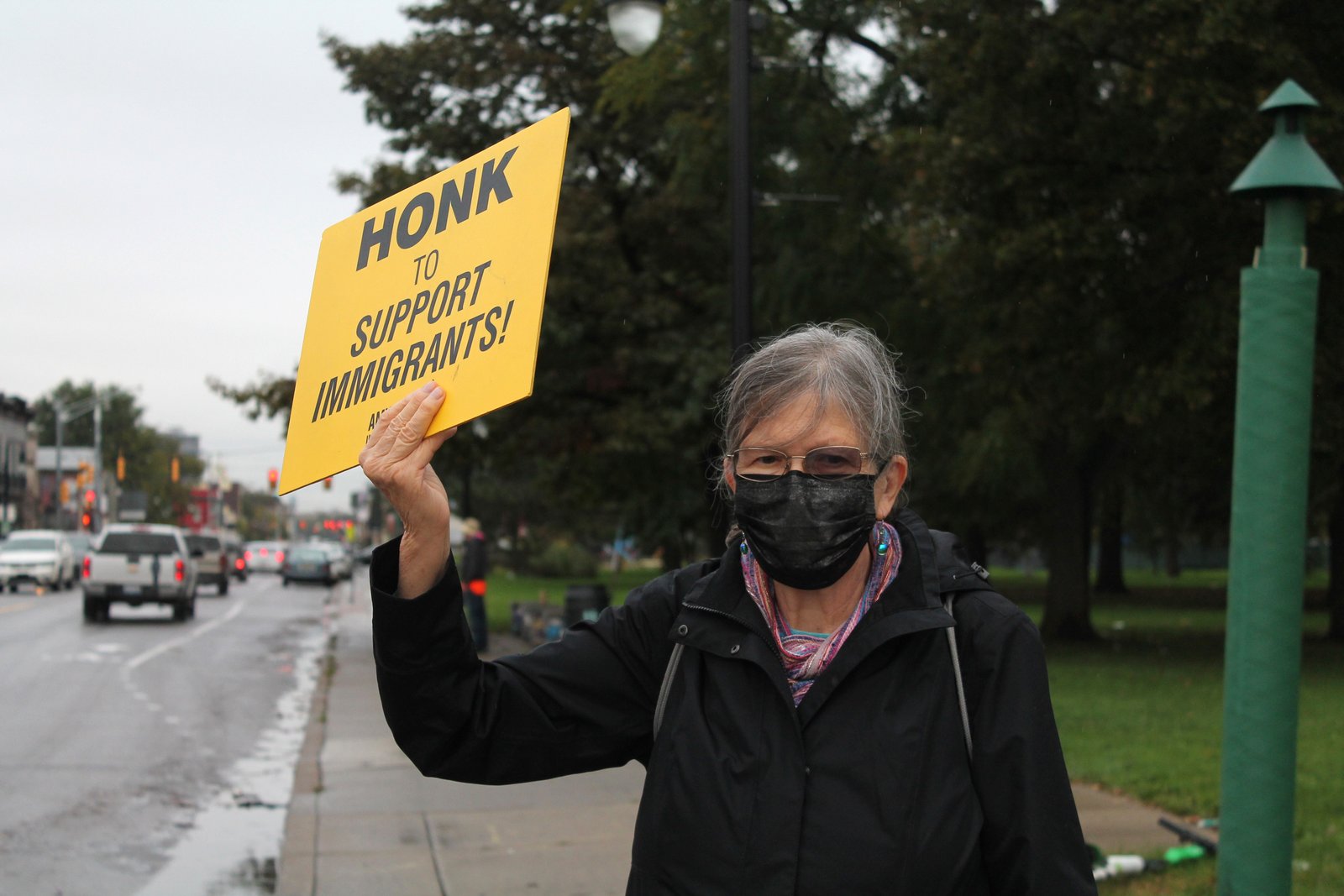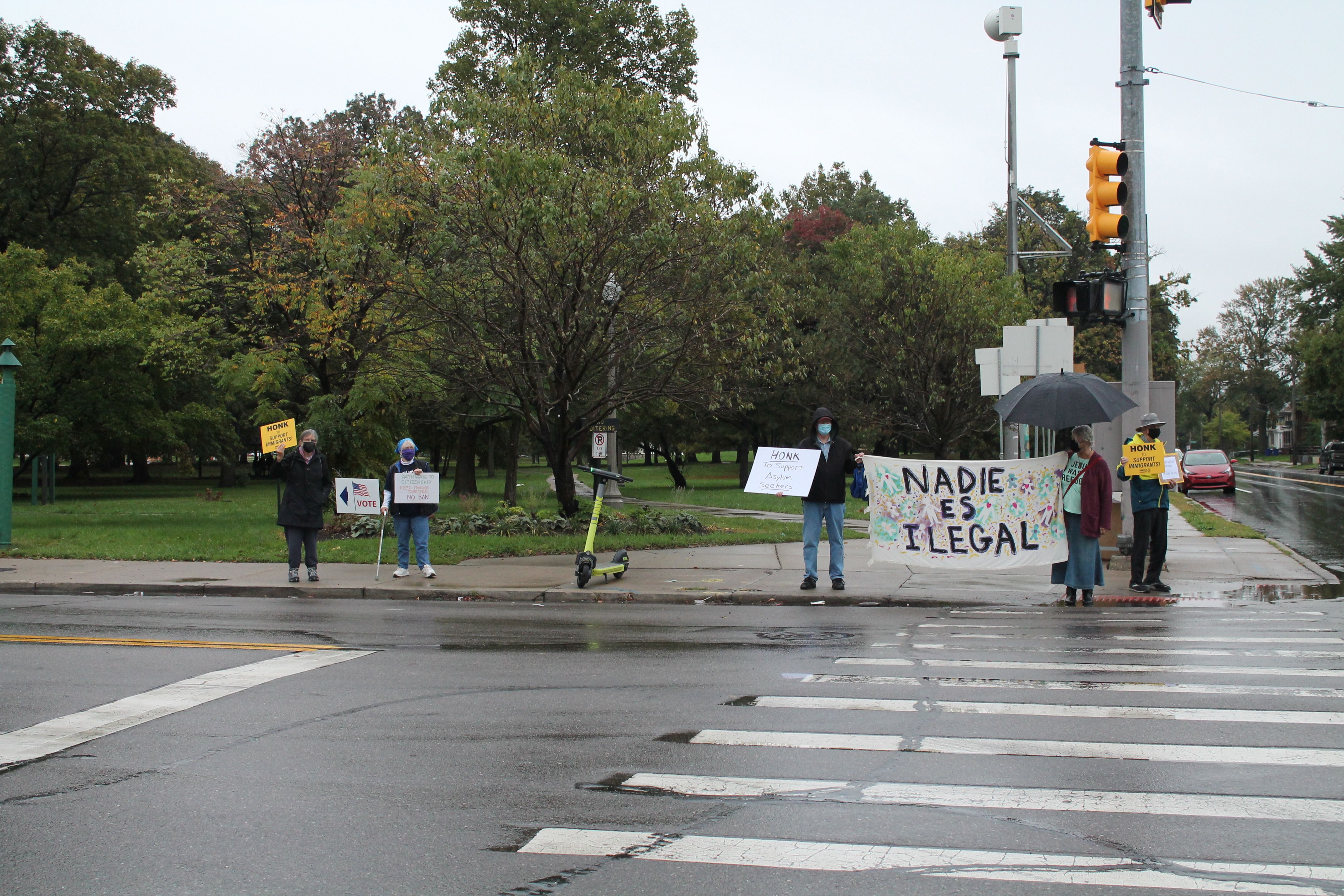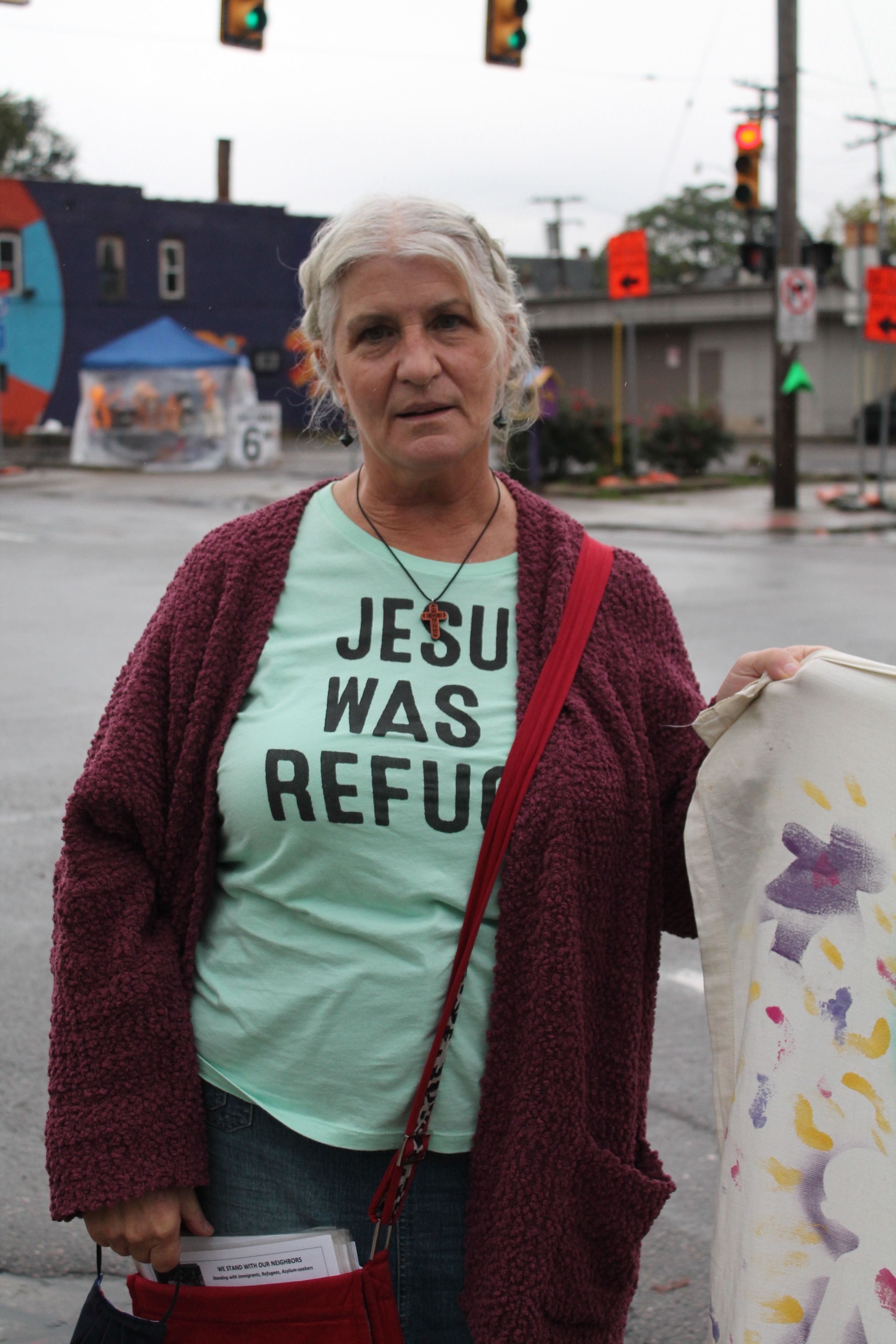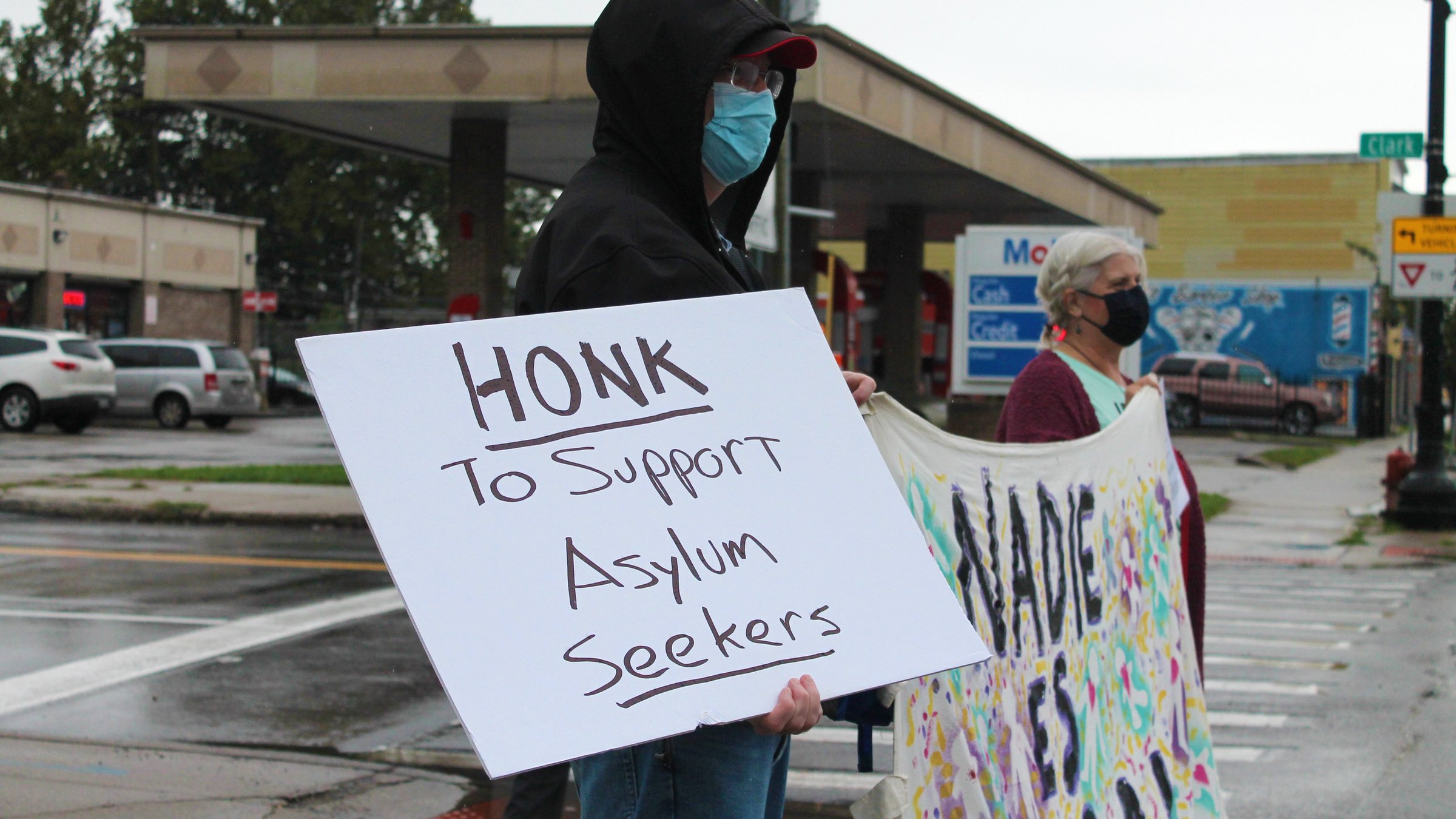Volunteers have held signs at corner of Vernor and Clark every Friday since 2017 in effort to show families 'they have friends' in community
DETROIT — Rain or shine, snow or sleet, every Friday since Feb. 3, 2017, there has always been someone standing on the corner of Vernor Highway and Clark Avenue on Detroit's southwest side reminding the children of immigrants and refugees in the area that they are not alone.
With a large, handpainted banner that says “Nadie es Ilegal” ("Nobody is illegal"), as well as signs that read “Honk to support immigrants,” and “Refugees are welcome,” the small group stands in solidarity in front of Clark Park.
Passing drivers routinely wave, and there is a constant chorus of car horns declaring their solidarity with the weekly vigil, known on Facebook as "We Stand With Our Neighbors." Every week, anywhere from five to 25 volunteers show up. Once, in a blizzard, a sole representative who lived down the street walked to the corner and held down the fort on their own.
The silent vigil was inspired by a conversation between Kim Redigan, a theology teacher at University of Detroit Jesuit High School, and Helena Solano, a social worker for Detroit Public Schools. They met while both working at the former Holy Redeemer High School, just down the street from where the vigil meets today.

When the pair began to see an escalation of raids and deportations conducted by U.S. Immigration and Customs Enforcement (ICE) in 2017, Solano observed the fallout from the trauma in her students.
Solano said it's not unusual for ICE agents to drive around the neighborhood in unmarked cars.
“The students were worried about whether they would be picked up or whether their parents were in danger of being picked up,” Solano wrote in an email to Detroit Catholic. “My students didn't feel safe anywhere, but they were also very worried about their parents.”
As her students began to cope with their fears, Solano asked her students what they would need in order to feel safe. One student told her they wanted ICE to know they have friends.
“That is why we call this vigil, ‘We Stand with Our Neighbors,’" Redigan said. "The idea is, by our presence, we want ICE to know that the children have friends.”

The weekly vigil takes place right as school is let out, Solano said, and serves as a reminder to students and their families that they are not alone.
“The vigil is a powerful reminder of the work that we do as Catholics in the public sector,” Solano said. “I am a public school educator, but to me, it's very important that my students and the Latino/a community see the Church in action. The Friday vigil is a testament that Jesus knows and witnesses our pain and suffering. (It is) a force of love, it is a silent witness of love and of solidarity. We are called to be there for those who are marginalized, for those who are hurting, for those being unjustly persecuted.”
Solano has worked with countless immigrant families who have been separated or deported, as well as with children who have had real and lasting trauma.
“I have heard countless stories of ICE banging on their front doors, demanding the person or people inside come out, or of ICE surrounding their home in the early morning, making that same demand,” Solano said. “It is those stories (among others), that show the importance of the Friday vigils and what they represent.”
Solano is committed to the vigil because of her students, but also because of the example of her own parents, who were active at Ste. Anne Parish in southwest Detroit in the 1960s and '70s, as well as her father’s work as a labor organizer. From them, she learned faith must be active.
“Jesus was a rebel too,” Solano added.

While the vigil was founded by Catholics, and the group ends each vigil with a prayer, it also attracts others in the community who identify with the cause.
But for Redigan, the vigil is an integral part of who she is as a Catholic, adding the Holy Family were also refugees during the beginning of Jesus’ life.
“Our Catholic social teaching is rooted in the dignity of the human person, the preferential (option) of the poor and the most vulnerable. And the Church has very rich teachings on immigration,” Redigan said. “We have a God without borders. We are one, holy, Catholic, apostolic church.”
Copy Permalink
Immigration and refugees












